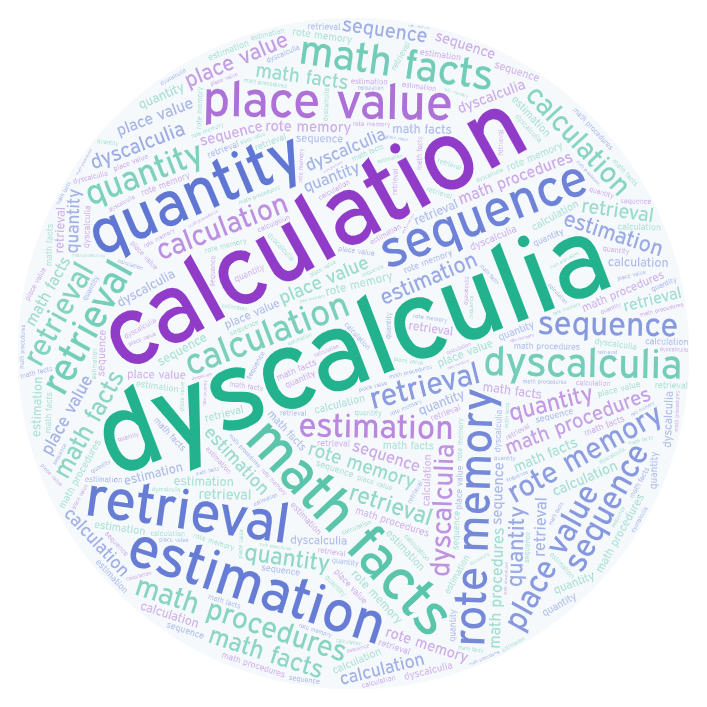“There is nothing in the IDEA that would prohibit the use of the terms dyslexia, dyscalculia, and dysgraphia in IDEA evaluation, eligibility determinations, or IEP documents.” – Michael Yudin, Department of Education “Dyscalculia is not assessed in our schools.” – school professional Fast Facts about Dyscalculia What Is Dyscalculia? Dyscalculia is usually defined as a difficulty with calculations or arithmetic skills that is not explained by low intelligence or inadequate schooling. How Common? 3-10% of people, 40% of dyslexics What Ages? Dyscalculia is lifelong, although many helpful strategies can improve math achievement. When adults with dyscalculia have calculator accommodations, they can perform at high levels in even mathematics-intense disciplines. From We Are Teachers How Do You Assess Dyscalculia? Typically dyscalculia is assessed by calculating the […]
How Do Math-Talented Dyslexics Do Calculations? [PREMIUM]
Despite the suggestion that dyslexic students who are strong in math use a different approach for doing basic mathematical operations, it’s surprising how little formal research has been done to figure out how math-gifted dyslexic individuals do what they do. At Georgetown University, neuroscience researchers were surprised to find
Ways to Keep Math Alive
1. CARD GAMES With a little twist, card games like War and Go Fish can be used to help kids hold onto math facts and math manipulations over the summer. If War (higher card win) is too simple, then Subtraction War (figuring out the difference between two cards) might...
HOW TO HELP WITH ALGEBRA: Positive and Negative Numbers
Math Tips for Dyslexia: Some students have difficulty using a number line because of right-left difficulties and the fact that there are some counter-intuitive principles when dealing with positive and negative numbers (the negative of a negative number is a...
Calculator Use: Accommodation or No?
A teacher writes, "I have a new student who transferred from a public charter school. She has an IEP accommodation for a calculator use for anything involving math calculations. But I'm wondering whether providing a calculator is changing standards? Is she learning...
[PREMIUM] DYSLEXIA AND MATH: Error Analysis
Some 60% of dyslexic students have problems with math (10% excel at math). Reasons for math difficulties include math facts retrieval, difficulty remembering formula and multi-stepped procedures, sequencing issues, symbol confusion, and difficulty with the language of math. These problems, in addition to timed tests and impossible-to-complete homework assignments, contribute to math anxiety and frustration. In a collaborative study from the University of Houstin, University of Texas, and Vanderbilt University (Raghubar et al., 2009), researchers looked at the different categories of math mistakes in 3rd and 4th grade children with or without math and reading disabilities. On the following page, look at the 4 types of math errors that they examined. Studies of this type are valuable because they also identify which types of errors are […]
The Fight over Rote Math
If you think you've been hearing conflicting information about rote math in the news or from schools, you're absolutely right. The fight is spilling over to educational policymakers and makers of standardized tests such as the College Board. For dyslexic and...
Math and Dyslexia: Dyslexic Advantage Talks to Stanford & Georgetown Experts Tanya Evans and Michael Ullman
Last week, I had a chance to chat with Stanford's Tanya Evans and Georgetown's Michael Ullman about their recent research paper about procedural learning and math. In their paper, their definition of procedural learning relates to the type of learning that...
Math Strategies for Arithmetic – Number Flexibility [Premium]
“Everybody could rock through their multiplication tables and I could do my ones and my twos and my zeros and my tens, and that was about it.” – Jack Laws, naturalist I’ve been enjoying a book, Mathematical Mindsets written by Stanford Professor Jo Boaler. It’s great stuff. She’ll help a lot of dyslexic students if they adopt her approaches to teaching math. The first concept is deceptively simple, but resonates with me after seeing over a decade of dyslexic students work math problems in our clinic. There is a high degree of overlap between dyscalculia and dyslexia although there is also a significant number of dyslexics who are solid or even outstanding mathematicians. The weak ones almost invariably struggle with basic math facts and require […]
Q: How Can My Student Be Tested for Dyscalculia ? [Premium}
The last decade has seen a great advance in the biological understanding of dyscalculia, or math disability. The DSM V groups a specific learning disorder in math (315.1) under Specific Learning Disability along with impairment in reading (315.000) and impairment in written expression (315.2). The NIH defines dyscalculia as a condition contributes to “difficulty understanding arithmetic concepts and doing such tasks as addition, multiplication, and measuring.” It is important to identify dyscalculia, because an unrecognized LD can contribute to cycles of academic underachievement, secondary behavioral and emotional issues, and obstacles to further academic or workplace advancement. With the recent addition of high-stakes exams like the calculator-free section of the new SAT, it is even more critical that students with dyscalculia be identified. The DSM V definition includes the […]
Top Back to School Apps for Dyslexia [Premium]
EARLY READERS Endless Reader by Originator – Free to try; $5.99-11.99 bundles. iPhone and iPad Great for visual learners. Animations and characters help with sight word learning. Orton Gillingham Card Deck by Mayerson Academy FREE. iPhone and iPad Multisensory card deck with consonants, single vowels, consonant digraphs, vowel teams, vowel + r, short vowel signals, VCe, and common suffixes. Auditory drill. Record and playback to hear pronunciations. Video see and hear sounds. Great phonics practice. Sight Words by Little Speller – FREE Iphone and Ipad All 220 sight words, no-frills program that allows you to create your own sight word lists – lower case or upper case letters. Can allow hints. Sight Words Reading and Spelling by Edoki $3.49 Android. Includes 320 sight words (Fryes + Dolce). […]
Tips for Supporting a Student with Dyscalculia – Steve Chinn
Thanks Steve Chinn of Maths Explained for this post. Steve also has several books with practical strategies to help with math and dyscalculia. There's The Trouble with Maths and an eagerly awaited Mathematics for Dyslexics and Dyscalculics - 4th Edition which is now...

![What is Dyscalculia? – Fast Facts [Premium]](https://www.dyslexicadvantage.org/wp-content/uploads/2016/02/shutterstock_172115972-math.jpg)
![How Do Math-Talented Dyslexics Do Calculations? [PREMIUM]](https://www.dyslexicadvantage.org/wp-content/uploads/2018/08/Screen-Shot-2019-08-30-at-10.17.08-AM.jpg)

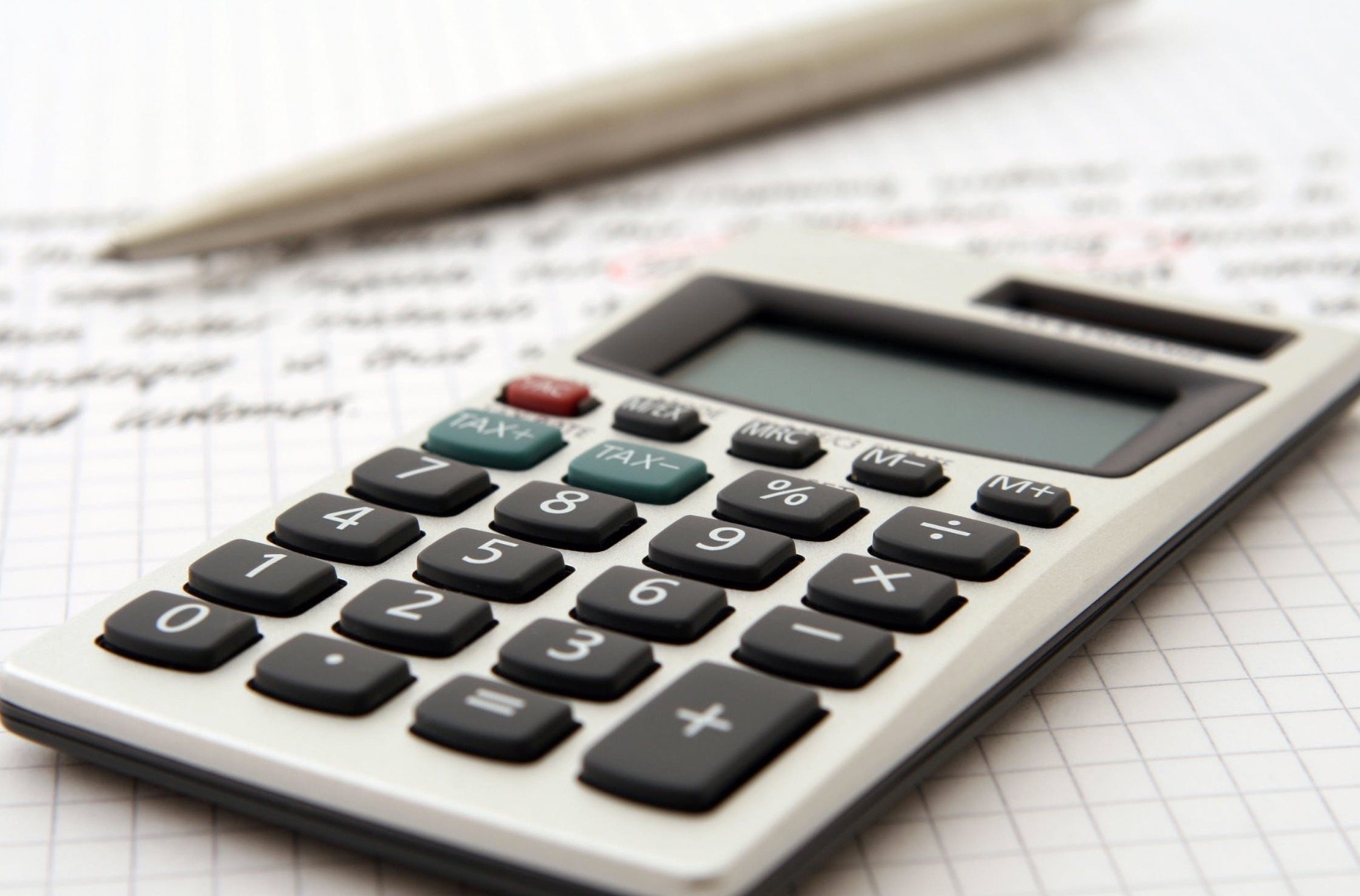
![[PREMIUM] DYSLEXIA AND MATH: Error Analysis](https://www.dyslexicadvantage.org/wp-content/uploads/2018/01/Screen-Shot-2019-08-30-at-7.18.50-PM.jpg)
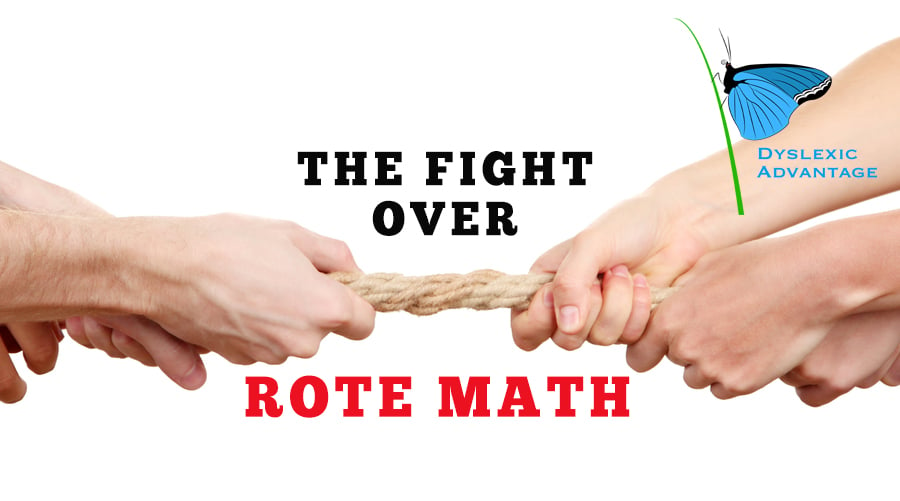
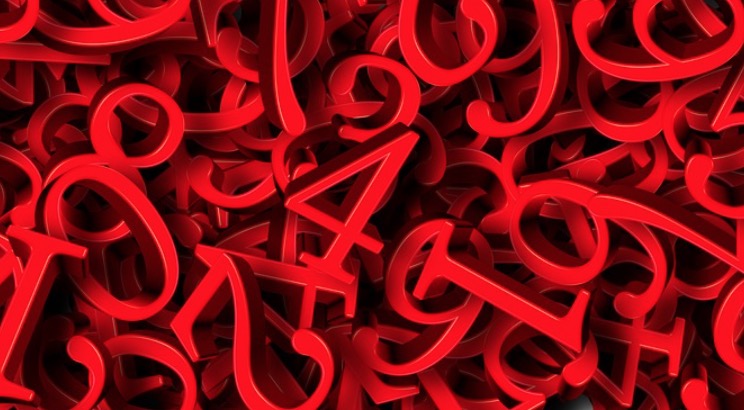
![Math Strategies for Arithmetic – Number Flexibility [Premium]](https://www.dyslexicadvantage.org/wp-content/uploads/2016/10/mental-math.jpg)
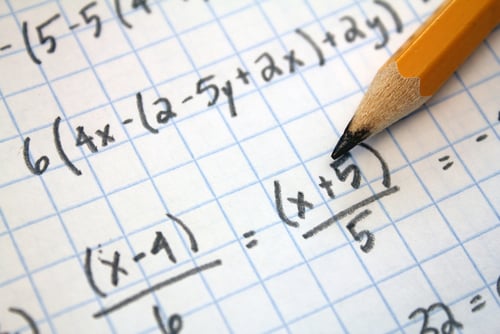
![Top Back to School Apps for Dyslexia [Premium]](https://www.dyslexicadvantage.org/wp-content/uploads/2016/08/apps-dyslexia-our-shutterstock.jpg)
